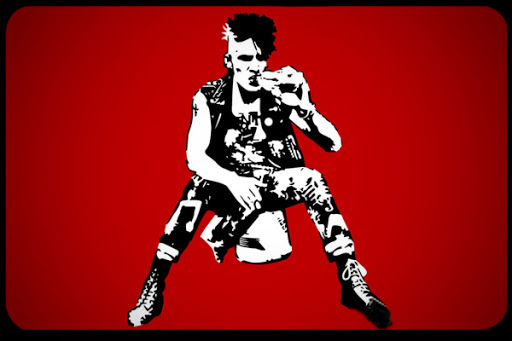With the takeover of liberalism and secularism in the West, Catholicism is now a subculture.
That is a serious and even dire-sounding sentence, but it’s not entirely meant to be. Yes, we Catholics are a now a subculture. Mainstream people in the media and politics don’t like us. But being in a subculture can be fun.
Maybe it’s because I was into punk rock when I was in college, but something in me still gets a charge about saying no to The Man. And now The Man is secular liberalism. The Man is the HHS mandate. The Man is Hollywood.
When I’m walking down the street and am approached by hectoring petitioners asking me to sign for gay “marriage,” it’s not unlike the feeling I’d get in the 1980s when I would be lectured by my conservative elders that the Ramones or the Clash were noise, not real music, and I was wasting my time listening to them. Back then I’d just smile and turn the music up louder. These days I just look at my friendly homosexual activist with clipboard say something simple: “Humanae Vitae.” That one always gets a priceless look.
I’ve lost the torn jeans and Bad Brains t-shirt, but all these years later I again find myself an outsider. And I admit it: I get a charge out of it. It’s fun. It’s like when Johnny Rotten scandalized rock and roll royalty by wearing a shirt that declared, "I HATE PINK FLOYD." Believe it or not, the punk comparison may not be so far off the mark.
I grew up in Washington, D.C., and when I was in college in the 1980s there was a movement in the city around “straight edge” punk rock. Straight edge, which coalesced around the band Fugazi, rejected drinking and drugs. Straight edge bands kept ticket prices low, dressed in simply clothes, and put on benefits for the local soup kitchen and rape crisis center. It was basically Catholicism set to a really loud and abrasive soundtrack. This is why it didn’t surprise me when, more than three decades later, I ran into Mark Andersen, one of the main figures from straight edge, and discovered than he had become church going Catholic.
Being in a subculture is now virtually only possible in an orthodox religious community. Gay “marriage” is on it’s way to being legal everywhere. Pot is becoming legal. Hip-hop is corporate. Even “alternative” comic book artists see their stuff on the front page of The New Yorker.
The last subculture was probably in the 1990s. In recent article at Vice, Clive Martin recalls the thrill of being part of several subcultures growing up in the that decade, including “Teddy Boys, New Romantics, ravers and garage-heads.” Martin:
Simply put, there’s nowhere to run, hide, or rebel anymore. Within seconds any potential subcultures is videotaped, downloaded and profiled in the New York Times. We now accept everybody and everything.
Well, almost. There is one truly outsider subculture left — strict religious orthodoxy.
Mark Judge, a journalist and filmmaker, is the author of Damn Senators: My Grandfather and the Story of Washington's Only World Series Championship and A Tremor of Bliss: Sex, Catholicism, and Rock 'n' Roll.

